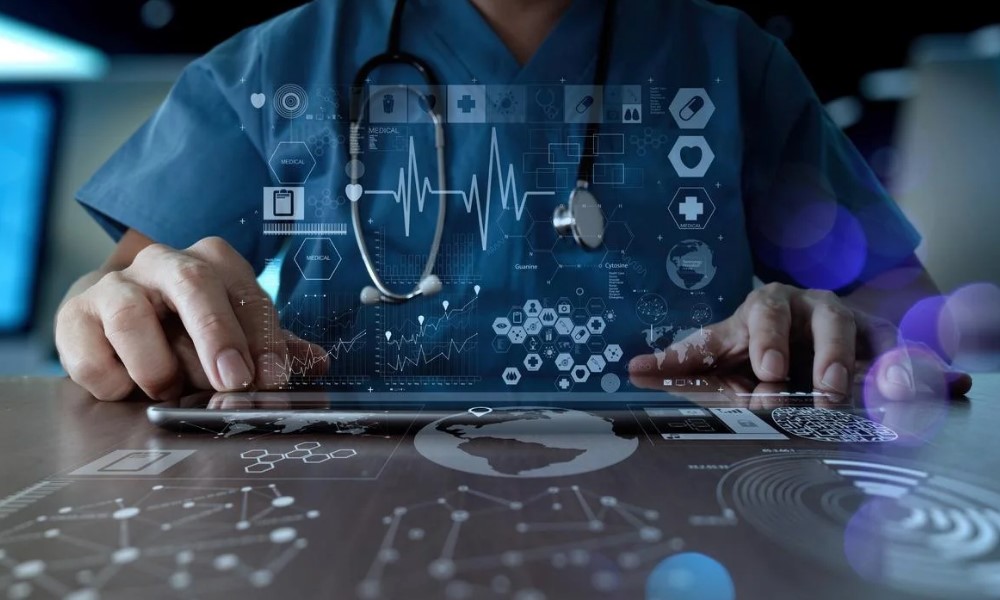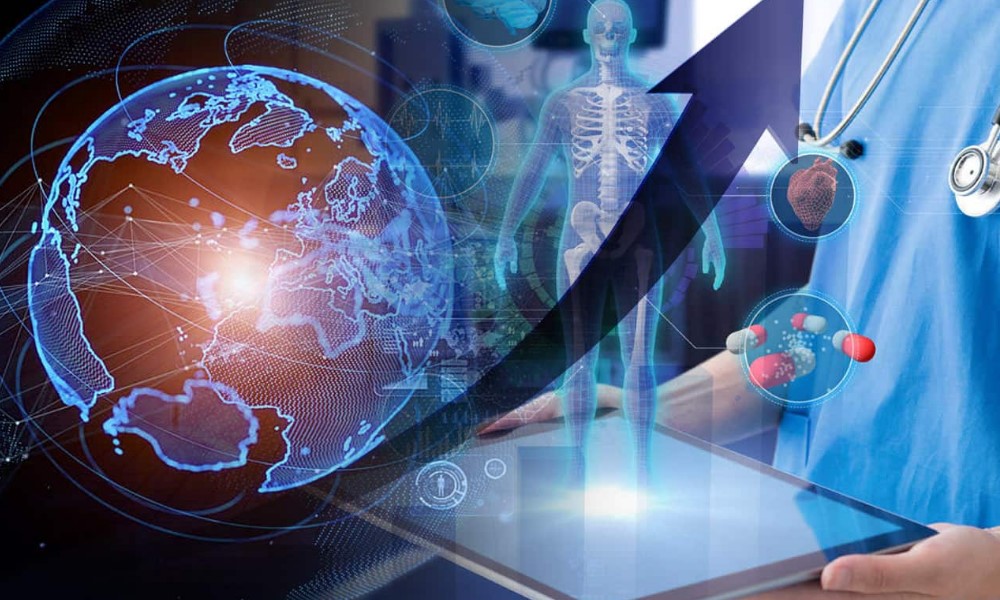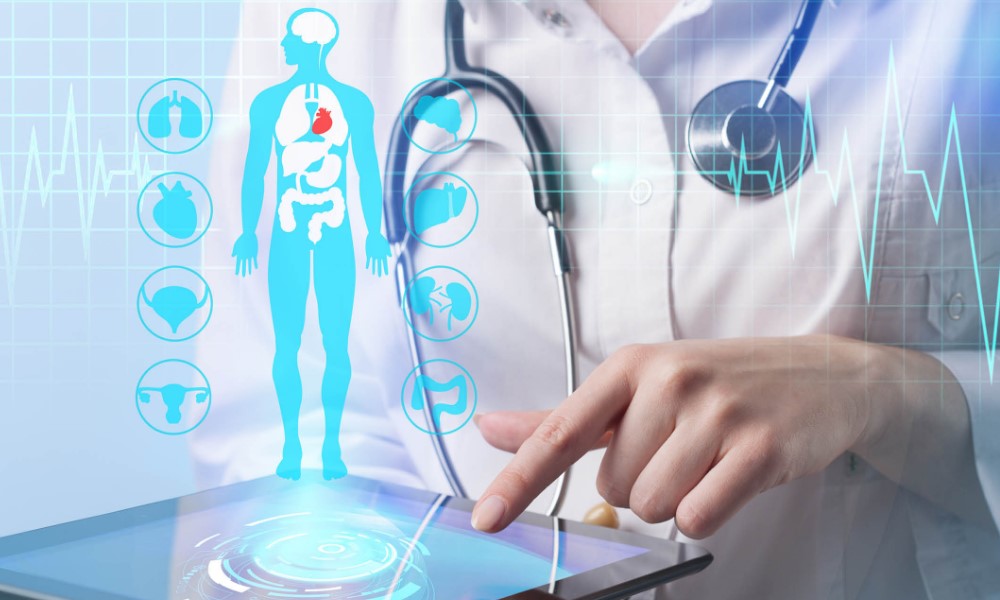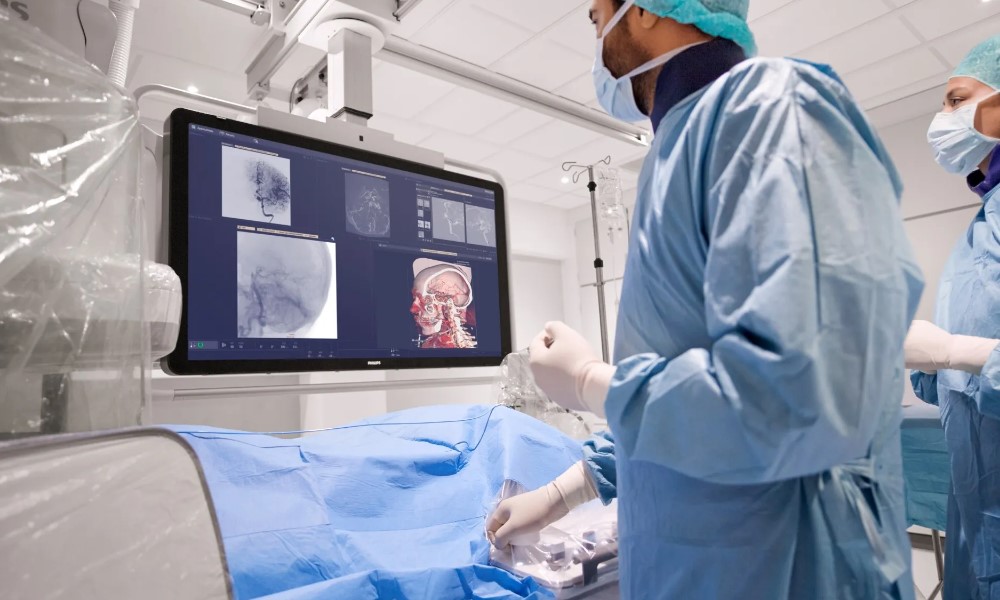Key Considerations for Technology Advancements in Healthcare
Healthcare is undergoing a major transformation, driven by the continuous advancements in technology. Innovations such as artificial intelligence (AI), telemedicine, wearable health devices, and robotic surgeries are not just improving patient outcomes, but also reshaping the way medical professionals work. These technologies are enabling earlier diagnoses, more personalized treatment plans, and enhanced patient engagement, all while reducing the cost and complexity of healthcare.
The Evolution of Technology in Healthcare

The evolution of technology in healthcare has dramatically transformed patient care, diagnostics, and treatment. Over the past few decades, advancements such as electronic health records (EHRs) have revolutionized how patient information is stored and accessed, improving efficiency and coordination among healthcare professionals.
Medical imaging technologies, like MRI and CT scans, provide detailed views of the body’s internal structures, enabling early diagnosis and precise treatment. Innovations in robotic surgery allow for minimally invasive procedures, reducing recovery times and improving outcomes.
The integration of artificial intelligence (AI) and machine learning is enabling predictive analytics, personalized medicine, and faster drug development. Telemedicine has gained prominence, allowing remote consultations and expanding healthcare access. Additionally, wearable health devices track vital signs in real-time, empowering individuals to monitor their health proactively.
As technology continues to evolve, it’s reshaping healthcare, making it more efficient, accessible, and patient-centered than ever before.
Key Consideration of Technology Advancements in Healthcare

As healthcare technology continues to evolve, it is important to consider several key factors to ensure that innovations are both beneficial and sustainable. Here are the most important considerations:
- Data Privacy and Security
With the widespread use of AI, telemedicine, and wearable devices, vast amounts of personal health data are generated and shared. Protecting this sensitive information is crucial to maintaining patient trust. Healthcare providers must ensure compliance with regulations like HIPAA in the U.S. and GDPR in Europe to protect patient privacy and prevent data breaches. - Cost and Accessibility
While advanced technologies like AI diagnostics, robotic surgery, and wearable devices offer tremendous benefits, they often come at a high cost. It is essential to consider the affordability and accessibility of these innovations, especially for underserved populations. Efforts should be made to bridge the gap between high-cost technology and those who need it most. - Integration with Existing Systems
New technologies should integrate seamlessly with existing healthcare infrastructure. Medical professionals need user-friendly systems that do not disrupt their workflow. A poorly integrated technology could lead to inefficiencies, reducing the potential benefits of innovation. - Regulatory Approval and Safety
Healthcare technologies must undergo rigorous testing and receive approval from regulatory bodies like the FDA or CE in Europe. Ensuring that the technology is safe, effective, and reliable is a top priority to avoid any risks to patient health. - Ethical Considerations
The use of AI and automation in healthcare raises ethical concerns. Decision-making algorithms, for example, must be transparent and free of bias to ensure equitable treatment for all patients.
Key Technological Advancements in Healthcare

1. Artificial Intelligence and Machine Learning
Artificial intelligence (AI) and machine learning have become pivotal in analyzing complex medical data, discovering patterns that are often missed by humans. These technologies are capable of early diagnosis, especially in diseases like cancer, where early detection is vital. AI is being used to develop algorithms that can read medical images, assist in drug discovery, and even predict patient outcomes based on health data.
Example: IBM’s Watson Health AI platform analyzes vast amounts of clinical data and medical literature to assist doctors in diagnosing and creating treatment plans. It helps streamline the decision-making process and ensures that the most effective treatment options are considered.
2. Telemedicine and Remote Monitoring
Telemedicine has become increasingly popular, especially during the COVID-19 pandemic. With telemedicine, patients can receive medical advice and consultations from the comfort of their homes. This not only saves time and resources but also increases access to healthcare for people living in remote areas. Remote monitoring devices have further enhanced this by allowing continuous monitoring of patients with chronic conditions, such as diabetes or heart disease.
Example: The rise of remote monitoring tools like the TytoCare Home Kit allows physicians to conduct remote physical exams, including checking the heart, lungs, and throat, while providing patients with real-time medical advice.
3. Wearable Health Devices
Wearable technology, which includes fitness trackers and smartwatches, is empowering people to take charge of their health by tracking important indicators like blood oxygen levels, heart rate, and even sleep habits. These devices help in preventive care, as they provide real-time health insights that can prompt individuals to seek medical attention before a condition worsens.
Example: Devices like the Fitbit Charge 5 and Withings ScanWatch provide users with constant health tracking, encouraging better lifestyle choices and facilitating early detection of potential health issues.
4. Robotic-Assisted Surgery
Robotic surgery systems allow doctors to perform complex procedures with greater precision, flexibility, and control than traditional techniques. These systems use minimally invasive methods, which means that patients experience fewer complications, less pain, and faster recovery times.
Example: The Da Vinci Surgical System is a robotic platform that enables surgeons to operate using small incisions, enhancing precision and reducing recovery times for patients undergoing surgeries such as prostatectomies or heart valve repairs.
5. 3D Printing in Healthcare
3D printing is revolutionizing healthcare by enabling the creation of personalized prosthetics, implants, and even organs. This technology allows for precise customization to suit individual patient needs, which can lead to better treatment outcomes.
Example: 3D printed implants are being used in reconstructive surgery, where patients require bone or tissue replacement. Additionally, 3D printing has been used to create customized medical devices and instruments that improve surgical outcomes.
Benefits of Technology in Healthcare

1. Early Diagnosis and Precision Medicine
AI and machine learning algorithms improve diagnostic accuracy by analyzing complex data from medical images, genetic profiles, and electronic health records. This allows for earlier detection of diseases and helps in tailoring treatments to an individual’s unique genetic makeup—this is known as precision medicine.
Why This Matters: Early detection and personalized treatment plans result in better outcomes for patients, especially in diseases such as cancer, where early intervention is crucial.
2. Increased Patient Engagement and Autonomy
Wearable devices like smartwatches and fitness trackers empower patients by allowing them to monitor their own health metrics. Patients can track their heart rates, physical activity, and sleep patterns, which helps them make informed decisions about their lifestyle and health management.
Why This Matters: Active participation in health monitoring leads to better long-term health outcomes and encourages preventive care, which can reduce the burden on healthcare systems.
3. Improved Access to Healthcare
Telemedicine allows people in remote or underserved areas to access specialized care that would otherwise be unavailable. By using digital platforms for consultations, follow-ups, and monitoring, healthcare providers can bridge the gap in healthcare accessibility.
Why This Matters: Patients who live far from healthcare facilities can still receive timely consultations, potentially reducing the severity of their condition by getting early treatment.
4. Reduced Healthcare Costs
Healthcare technologies can lead to significant cost savings for both healthcare providers and patients. Telemedicine eliminates the need for travel and reduces hospital readmissions. AI-powered diagnostic tools and robotic surgeries also help reduce the chances of errors or complications, which can further reduce overall healthcare costs.
Why This Matters: Cost-effective solutions allow more patients to access high-quality healthcare services without being financially overburdened.
Top 5 Healthcare Technology Products
1. Fitbit Charge 5
The Fitbit Charge 5 is a cutting-edge wearable health tracker that monitors your heart rate, sleep quality, and stress levels. It is designed for individuals who want to actively manage their health by tracking key metrics and improving their fitness levels.
- Price: $179.95
- Features: Continuous heart rate monitoring, ECG, sleep tracking, stress management tools, built-in GPS
- Use Case: Best suited for fitness enthusiasts and individuals looking to improve their overall health by monitoring activity, sleep, and stress.
Benefits: Provides real-time health insights that encourage lifestyle changes, improves fitness and sleep quality, and helps in the early detection of heart-related issues.
Where to Buy: Available on the Fitbit Store.
2. TytoCare Home Examination Kit
The TytoCare Home Examination Kit is a telehealth solution that allows users to perform remote physical exams from home. It includes tools for examining the heart, lungs, throat, and more, all while consulting with a healthcare provider in real time.
- Price: $299
- Features: Heart and lung monitoring, temperature measurement, AI-powered diagnostics
- Use Case: Ideal for individuals who require routine checkups or have chronic conditions that need regular monitoring.
Benefits: Eliminates the need for frequent doctor visits, provides real-time consultations, and helps detect early symptoms of chronic conditions like respiratory infections.
Where to Buy: Available on the TytoCare Website.
3. Withings ScanWatch
The Withings ScanWatch is a hybrid smartwatch that provides advanced medical features such as electrocardiogram (ECG) readings and blood oxygen monitoring. It’s perfect for individuals looking to monitor their cardiovascular health.
- Price: $299.95
- Features: ECG, SpO2 monitoring, heart rate tracking, sleep analysis, long battery life
- Use Case: Best for those who need regular monitoring of heart health, especially people at risk of atrial fibrillation or sleep apnea.
Benefits: Tracks cardiovascular health with medical-grade accuracy, helps users monitor their sleep and physical activity, and provides early warnings of potential health issues.
Where to Buy: Available on the Withings Store.
4. AliveCor KardiaMobile
The AliveCor KardiaMobile is a portable ECG device that connects to your smartphone, allowing you to monitor your heart’s health anytime, anywhere. It’s FDA-approved and provides highly accurate ECG readings.
- Price: $89
- Features: Portable ECG, smartphone connectivity, detects atrial fibrillation, FDA approved
- Use Case: Suitable for individuals with heart conditions who need regular ECG monitoring, such as those at risk for AFib, bradycardia, or tachycardia.
Benefits: Provides instant ECG readings, easy to carry and use, and helps in early detection of abnormal heart rhythms.
Where to Buy: Available on the AliveCor Website.
5. Medtronic MiniMed 670G
The Medtronic MiniMed 670G is an advanced insulin pump system designed for people with Type 1 diabetes. This hybrid closed-loop system automatically adjusts insulin levels based on continuous glucose monitoring.
- Price: Contact for pricing
- Features: Automated insulin delivery, real-time glucose monitoring, personalized adaptive system
- Use Case: Best suited for Type 1 diabetics who need continuous glucose monitoring and automated insulin management.
Benefits: Reduces the burden of managing insulin manually, provides more accurate blood sugar control, and helps prevent hypoglycemia and hyperglycemia.
Where to Buy: Available on Medtronic Diabetes.
Comparison Table: Top Healthcare Technology Products
| Product | Use Case | Pros | Cons | Price | Features |
|---|---|---|---|---|---|
| Fitbit Charge 5 | Fitness tracking and health management | Real-time health insights, ECG, sleep tracking | Subscription needed for premium features | $179.95 | Heart rate tracking, ECG, sleep analysis, stress management |
| TytoCare Home Kit | Remote health exams and telemedicine | Wide range of exams, AI diagnostics | High initial cost | $299 | Heart and lung monitoring, temperature checking |
| Withings ScanWatch | Cardiovascular health monitoring | ECG and oxygen monitoring, long battery life | ECG feature not available in all countries | $299.95 | ECG, SpO2 tracking, heart rate monitoring |
| AliveCor KardiaMobile | Portable ECG monitoring | FDA-approved, easy to use | Only offers ECG readings | $89 | Portable ECG, smartphone connectivity |
| Medtronic MiniMed 670G | Automated insulin management for diabetes | Real-time glucose monitoring, automated insulin | Expensive, complex setup | Contact | Insulin pump, glucose monitoring, closed-loop system |
Transactional Information: Where to Buy
- Fitbit Charge 5 is available on the Fitbit Store.
- TytoCare Home Examination Kit is available on the TytoCare Website.
- Withings ScanWatch can be purchased from the Withings Store.
- AliveCor KardiaMobile is available on the AliveCor Website.
- Medtronic MiniMed 670G is available on the Medtronic Diabetes Website.
Use Cases: Solving Healthcare Challenges with Technology
- Fitbit Charge 5 helps individuals monitor their daily physical activity, heart rate, and sleep quality. It encourages healthier habits and detects early signs of cardiovascular issues, reducing the risk of heart attacks and strokes.
- TytoCare Home Kit enables remote consultations and physical exams, making healthcare accessible to patients in rural or underserved areas. It provides early detection of respiratory or cardiac conditions, reducing the need for frequent doctor visits.
- Withings ScanWatch is ideal for patients at risk of atrial fibrillation (AFib). Its ECG and blood oxygen sensors detect abnormal heart rhythms and provide early warnings, allowing for timely medical intervention.
- AliveCor KardiaMobile provides instant ECG readings, which help people with heart conditions monitor their heart health regularly and detect arrhythmias early. This can prevent severe complications like strokes.
- Medtronic MiniMed 670G reduces the manual workload for people with Type 1 diabetes by automating insulin delivery based on continuous glucose readings, leading to better blood sugar control and fewer health complications.
FAQs
- What is the main benefit of AI in healthcare?
AI improves diagnostic accuracy, allowing for earlier detection of diseases and more personalized treatment plans. - Can wearable health devices replace medical equipment?
Wearables provide valuable health insights but are not a substitute for professional medical equipment, especially for serious conditions. - Is telemedicine suitable for chronic disease management?
Yes, telemedicine, combined with remote monitoring devices, allows healthcare providers to track chronic conditions like diabetes and heart disease in real-time. - What is a hybrid closed-loop insulin pump?
A hybrid closed-loop insulin pump, like the Medtronic MiniMed 670G, adjusts insulin levels automatically based on continuous glucose monitoring, improving blood sugar control. - Where can I buy reliable wearable health devices?
Wearable health devices can be purchased from authorized retailers such as the Fitbit Store, Withings Store, and AliveCor websites.